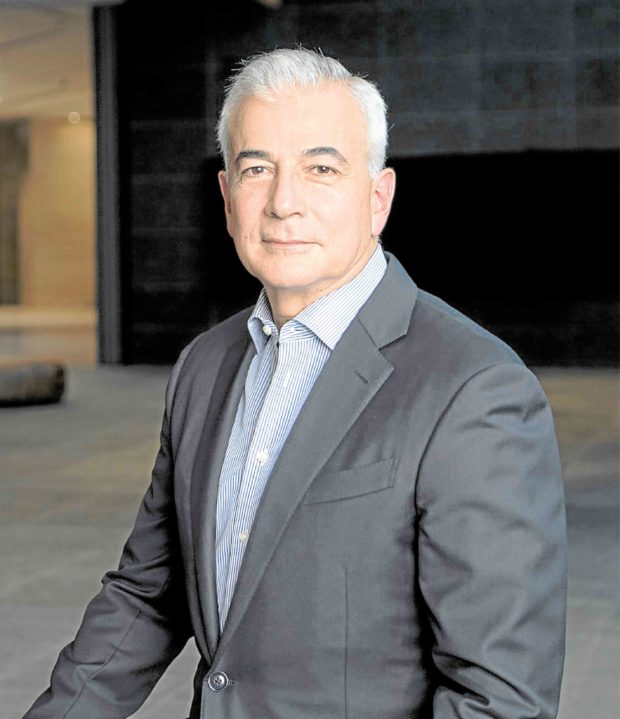While still grappling with unprecedented disruptions caused by the prolonged COVID-19 pandemic, corporate Philippines is striving to do better in the global race against time to mitigate climate change, seen as the biggest existential threat to humanity.
The country’s oldest business house, Ayala Corp., recently committed to achieve “net zero” greenhouse gas emissions by 2050, aligning its business strategy with the Paris Agreement’s goal of limiting global warming to 1.5 degrees Celsius compared to pre-industrial levels. This bold commitment—the first for a local conglomerate—was announced by Fernando Zobel de Ayala, president and chief executive officer of Ayala.
“Climate action is an existential issue for all of us. I believe that businesses, given their scale and resources, should take the lead in transitioning communities toward a low-carbon economy, informed by science, constructive dialogue and cooperation,” Zobel said.
The net zero mid-century goal seeks to completely negate the amount of greenhouse gases produced by human activity. This starts by measuring emissions, setting goals and taking concrete steps, such as by building energy-efficient structures, retrofitting old ones, reducing and recycling waste, doing large-scale reforestration and shifting to renewable energy. Progress should be documented and reported to the public.
The SM group, for its part, shared its vision for an entire ecosystem of sustainable businesses that contribute toward a green, prosperous environment while mobilizing business leaders, regulators and other stakeholders to discuss this agenda at the recent Global Reporting Initiative (GRI)-SM sustainability forum.
“We are coming out of a period of tremendous change, and we have tremendous change ahead of us that’s needed to be done, and the expectation of all of our stakeholders—the people who are watching this, the businesses and the business leaders—is that we will rise to that challenge … And we will be judged, if not by them, then certainly by history,” said Tim Daniels, head of investor relations and sustainability at SM Investments Corp.
Rethinking business
“We anticipate that there will be enduring changes triggered by the pandemic and we see these enduring changes as new opportunities to be of service. We are reimagining new ways to be of service to people, to businesses of all sizes, to the local communities that our malls belong to and ultimately to the country and to the planet we share,” said Steven Tan, president of SM Supermalls.
SM is putting up solar facilities on the roof deck of more and more of its malls to generate renewable energy. The group is also working its way to divert plastic waste from oceans and landfills by initiating collection programs in its malls scattered in the country that have become venues to collect plastic waste.
Ayala is setting science-aligned targets covering: scope 1 (direct emissions from owned or controlled sources), scope 2 (indirect emissions from generation of purchased electricity), and relevant scope 3 (other indirect emissions across the value chain). In line with this, Bank of the Philippine islands has stopped funding new coal-fired power generation projects to halve its coal loan exposure by 2026 and go down to zero by end of 2032.
Globe Telecom has shifted to buying energy directly from renewable energy producers for its offices and facilities, while AC Energy is on its way to installing 5 gigawatt of renewable energy by 2025.
For Federico Lopez, chair and CEO of First Philippine Holdings, “sustainability is no longer enough in a world that’s badly in need of healing and renewal.” “Regeneration” is his group’s recrafted battlecry.
“We could carve out a definitive path to decarbonize electricity system in the country, take charge of transition from fossil fuels like coal and natural gas today to renewables like geothermal, hydro, solar and wind, also of course, storage batteries, and energy efficiency and other smart energy technologies,” Lopez said during the GRI-SM forum.
Energy Development Corp. is now working to bring down the cost of geothermal power, “although admittedly not quite as dramatically as what we’ve seen for wind and solar,” he said.
The Lopez group is likewise planning for the eventual phaseout of its liquefied natural gas operations in line with the pathway to net zero by 2050.
“They could eventually be re-powered into using clean hydrogen in the coming decades, as technology develops and attains commercial [viability]. Now, if we green the electricity grid, it opens up the electrification of transport in many other industrial manufacturing processes, which today are run by polluting fuels like gasoline, diesel and bunker fuel,” he said.
Demand accountability
But consumers and organizations are also urged to be on the look-out for “greenwashing”, referring to misleading or inaccurate claims that some entities may publicize in order to appear virtuous and ride on the sustainability bandwagon.
“We’re not just talking about greenwashing. We’re taking about SDG (UN Sustainable Development Goals)-washing. There’s also now a new term- carbon-washing- because of all of these talks about net zero commitment. So I’d go back to the other stakeholders in this ecosystem who consume these reports.. When there are people scrutinizing these reports, the company will think once or twice on what type of information that they put out,” said Allinnettes Adigue, head of GRI’s Asean Regional Hub. INQ


